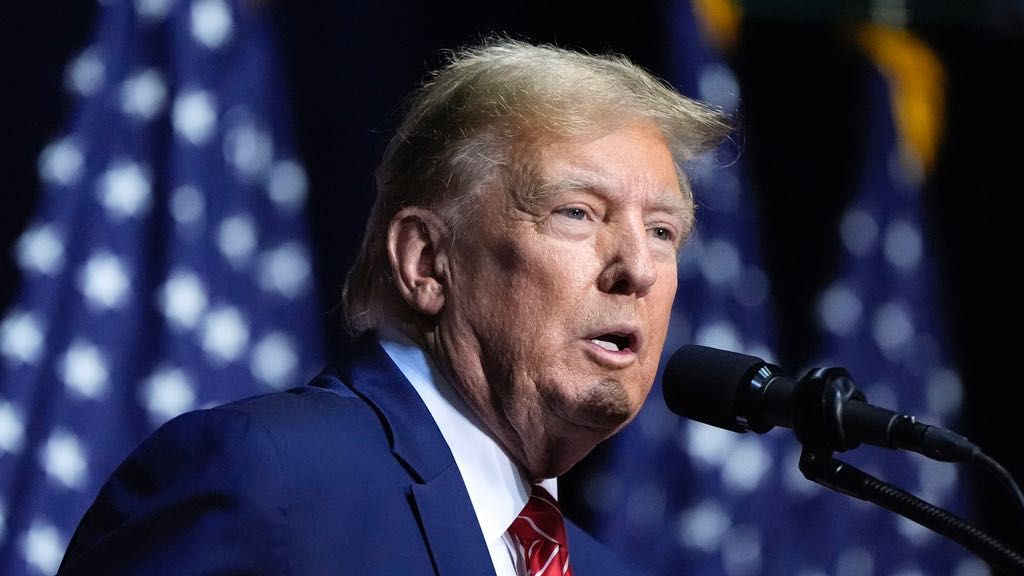A judge in Georgia has rejected former President Donald Trump's efforts to dismiss the state's election subversion case against him on First Amendment grounds.
The indictment issued in August by a Fulton County grand jury accused Trump and 18 others of participating in a wide-ranging scheme to illegally try to overturn the 2020 presidential election in Georgia after he lost the state to Joe Biden.
Trump's attorneys last week argued before Fulton County Superior Court Judge Scott McAfee that the indictment against the former president should be dismissed, contending that his "calling into question" the results of the 2020 presidential election consituted speech protected under the First Amendment.
McAfee wrote that at this pretrial stage he must consider the language of the indictment in a light favorable to the prosecution. The charges do not suggest that Trump and the others are being prosecuted simply for making false statements but rather that they acted willfully and knowingly to harm the government, he wrote.
"After considering the extensive briefing, the argument of counsel, and the indictment, the Court finds these vital constitutional protections do not reach the actions and statements alleged by the State," McAfee wrote in his order. "Nor do the statutes themselves facially violate the First Amendment."
“Even core political speech addressing matters of public concern is not impenetrable from prosecution if allegedly used to further criminal activity,” the judge wrote.
He added that even lawful acts involving speech protected by the First Amendment can be used to support a charge under Georgia's anti-racketeering law, which prosecutors used in this case.
But McAfee did leave open the possibility that Trump and others could raise similar arguments “at the appropriate time after the establishment of a factual record.”
Steve Sadow, Trump's lead attorney in Georgia, said in an email that Trump and the other defendants “respectfully disagree with Judge McAfee’s order and will continue to evaluate their options regarding the First Amendment challenges.” He called it significant that McAfee made it clear they could raise their challenges again later.
A spokesperson for Fulton County District Attorney Fani Willis declined to comment.
McAfee's order echoes an earlier ruling in the federal election interference case against Trump brought by Department of Justice special counsel Jack Smith. U.S. District Judge Tanya Chutkan wrote in December that “it is well established that the First Amendment does not protect speech that is used as an instrument of a crime.”
No trial date has been set for the sprawling Georgia case, one of four criminal cases pending against Trump as he seeks to return to the White House, though Willis has asked for the trial to begin in August. Four people have pleaded guilty after reaching deals with prosecutors. Trump and the others who remain have pleaded not guilty.



